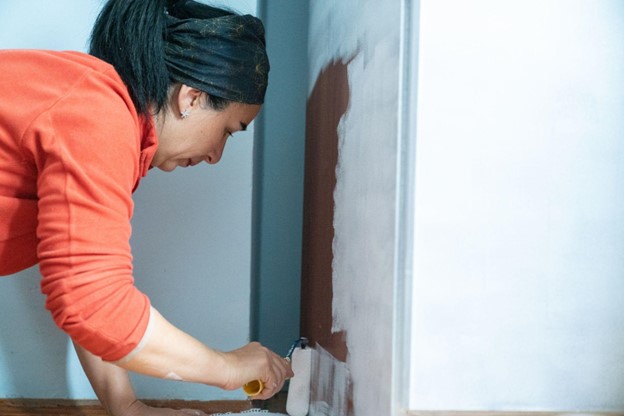How to paint a wardrobe
How to Paint a Wardrobe


How to paint a wardrobe
Cheap and cheerful flat-pack furniture is designed to be replaced after a decade. While this has the advantage of enabling you to refresh an area with new items every 10 years or so, this can be expensive and is not good for the environment. In contrast, if you invest in high quality furniture, you will find it’s built to last generations. But what do you do when it’s time to revamp and redecorate your home?
The simple answer is to reinvent existing items of furniture, such as your bedroom wardrobe, with a lick of paint. This can be done a few times over the course of a wardrobe's life. However, in order for the item to look the part, you need to know how to correctly prepare, carry out and maintain a new paint job. Carry on reading for our top tips for painting your wardrobe.
How to paint an armoire or wardrobe
Rejuvenating classic wardrobes and armoires with a few coats of paint is highly effective, but takes time and patience. It also requires the correct equipment. So, before you get started, ensure that you have all the tools and supplies listed below:
● Appropriate primer and your chosen paint
● Clean large-headed paint brushes/rollers
● Sandpaper and a sanding block
● Safety goggles and a dust mask
● A damp cloth and bucket of warm water
● Suitable screwdriver(s) (to remove wardrobe doors)
Once you’ve gathered the tools and supplies you need to complete the job, all you need is the time to carry it out. Naturally, the time required depends on the size of your wardrobe. However, we would recommend setting aside a full day. This will allow you to complete each step below properly, resulting in the best final result possible.
1. Get set up
Start by completely emptying your wardrobe and removing the door(s). This can be done by hand using a screwdriver or with a drill. Once removed, place all screws and hinges in a safe place.
Next, clean the entire surface of the item. This can be done with a non-abrasive cloth and a bowl of warm soapy water. Ensure all dust and grease has been removed and then leave the item to fully dry before moving onto sanding.
2. Sand and prime
New paint will take better to your wardrobe if it has a smooth surface to stick to. To ensure this is the case, smooth all surfaces using non-gritty sandpaper and a sanding block. As a rule, 120 grit sandpaper is enough for this job. Once all surfaces have been sanded, wipe the entire item down with a damp cloth and vacuum the space you’re working in.
Although you will not need to prime your wardrobe if it has been painted or varnished in the past, newer items will require primer. MDF, ply and previously untreated woods will need a coat of wood or multi-surface primer to ensure your paint adheres to these naturally absorbent materials. Similarly, for best results, laminate or melamine wardrobes will require a coat of oil-based primer. Once you have applied primer, make sure you leave it to dry fully before starting to paint.
3. Paint
It’s important to invest in high quality paint for this job to ensure lasting results. We would recommend oil-based furniture paint in a satin or semi-gloss finish. This is more durable than latex paint and is less likely to chip or peel over time.
When it comes to the painting process, technique is key. Using a wide brush or roller, apply two to three coats of paint. Any corners or intricate detailing should be repainted individually using a smaller brush, ensuring all areas of the surface are properly covered. Once you are confident the job is done, leave 24 hours for all areas to dry.
4. Reconstruct and tidy up
Finally, once the frame of the item and the door(s) are dry, it's time to put the wardrobe back together. Carefully reattach the hinges and screw the freshly-painted door(s) back to the frame using a screwdriver. When the item is reassembled and back in position, give it one final wipe down using a dry, microfiber cloth.
What colour to paint wardrobes
Naturally this all comes down to personal preference. However, whites and neutral pastel colours are usually the most popular choices when it comes to furniture paint. This is because these items tend to be large. If they are a light, neutral colour, they can help to reflect light, allowing the space to feel airy and spacious.
That being said, there are no rules when it comes to choosing your paint colour. If you are a traditionalist, or have a clean-cut bedroom aesthetic, sticking to whites and other neutral colours might be a good idea. However, if you’re looking for a bright and bold colour to complement your bedroom's more eclectic interior design, don't be afraid to go bold with your choice of colours. Shades of red, blue, yellow and even green can all look great in the right interior. It all depends on your personal taste and current interior design.
